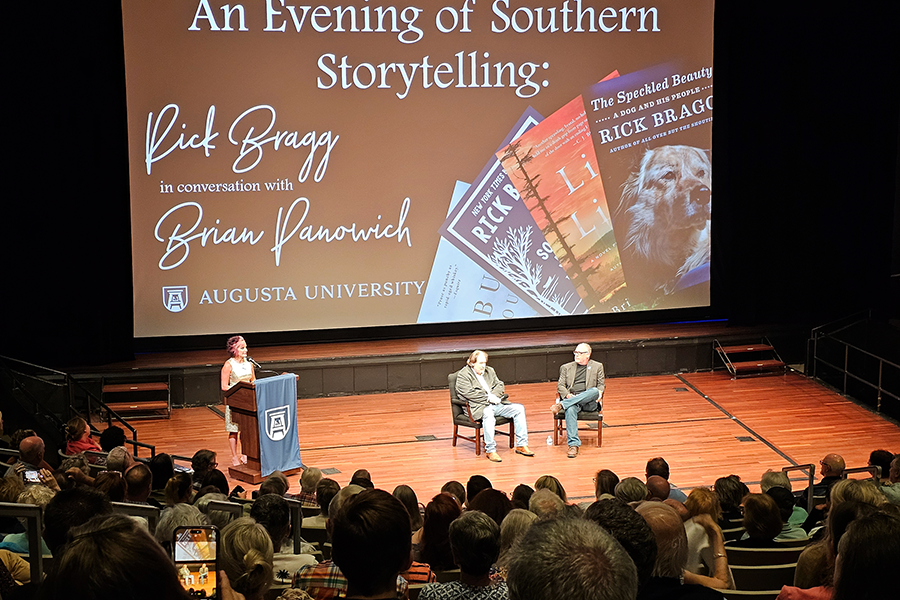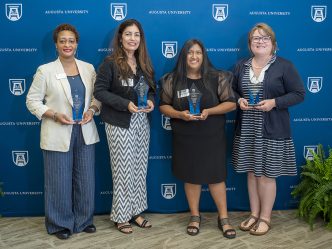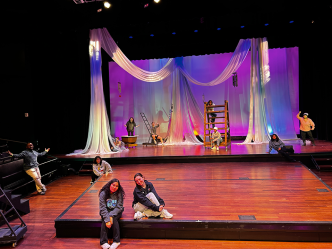Pulitzer Prize-winning journalist and author Rick Bragg shared his trademark warmth, wit and storytelling with the Augusta community during An Evening of Southern Storytelling, held Aug. 22 at Augusta University’s Grover C. Maxwell Performing Arts Theatre.
The event was presented by the Augusta University Writing Project in partnership with The Graduate School, the Augusta Authors Club and The Book Tavern.
“Our job is to make sure that we offer events to the community that celebrate writing, and that we work with educators in the local area to ensure they have the skills they need to support the writers in their classrooms,” said Rebecca G. Harper, PhD, director of the AU Writing Project and a professor in the Department of Research, Counseling, and Curriculum in the College of Education and Human Development.
For Harper, hosting Bragg was not only a professional honor but also a personal highlight. She recalled first meeting him earlier this year at a literary festival in Dahlonega, Georgia.
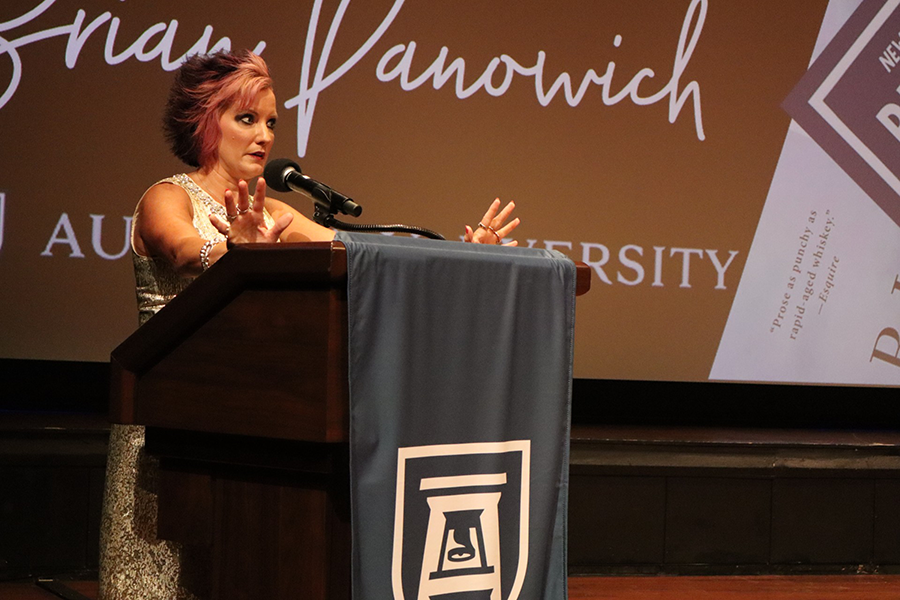
Bragg was introduced by Augusta author Brian Panowich, a Grovetown native, former firefighter and rock-and-roll musician turned award-winning novelist. Panowich is known for his Southern crime noir novels, including Bull Mountain and Like Lions.
During their conversation on stage, Panowich reflected on the differences between fiction and nonfiction writing. As a novelist, he admitted he can invent characters or plot twists when needed, but he asked Bragg, “As a nonfiction writer, how do you transform ordinary, everyday details into extraordinary stories that captivate readers?”
Bragg answered by pointing to the grit and sacrifice of his own family.
“Their lives were extraordinary because of the sacrifice. Ordinary people who cut pulpwood, dug coal, worked in cotton mills — they sacrificed their bodies, their health, their lives for their people. And in that sacrifice was the heroism. That’s what made it remarkable,” Bragg said.
Bragg, who has authored bestsellers including All Over but the Shoutin’ and The Best Cook in the World: Tales from My Momma’s Table, spoke to the power of writing about everyday people and the often-overlooked moments that define Southern life.
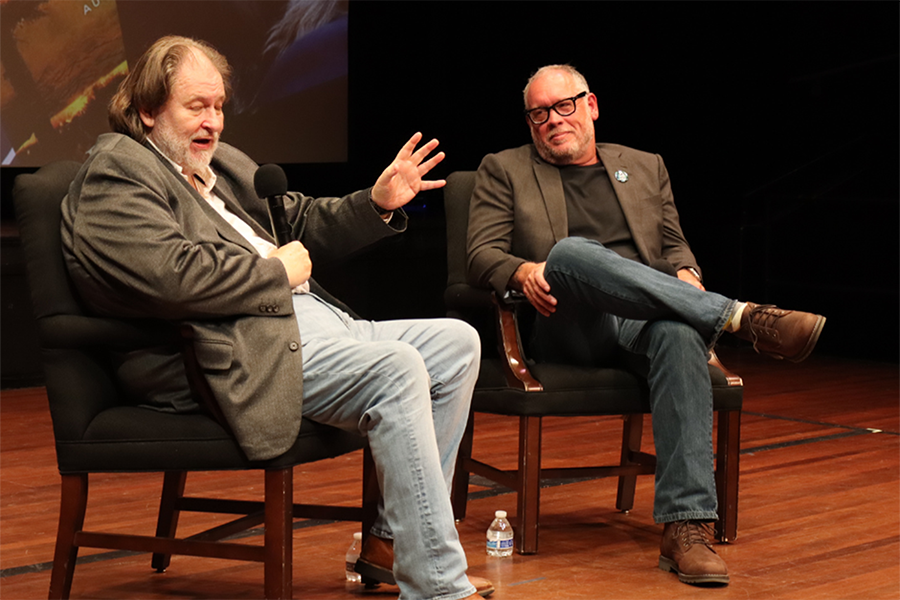
He explained how sometimes stories take on a shape he never planned. While writing Ava’s Man, he intended to tell his grandfather’s story, but his grandmother’s presence kept “intruding.”
“Her voice, her spirit, the things she said — they just wouldn’t leave me,” Bragg said. “So of course, when it came time to title it, it became Ava’s Man, because it was going to be told largely through her.”
His stories of family, memory and culture reminded listeners that even the simplest lives can hold extraordinary meaning. For Sherita Cash, a graduate student working on her Doctorate of Education in Educational Innovation with a concentration in curriculum and instruction, Bragg’s focus on authenticity was particularly resonant.
“Everyone has to tell their story from their perspective,” she said. “I respect his perception, which is ‘I’m telling my story the way it is, not how people think it should be.'”
By bringing nationally recognized writers like Bragg to Augusta, the Augusta University Writing Project continues to extend learning opportunities beyond the classroom. The event highlighted the importance of storytelling while encouraging both students and community members to see themselves as writers. As Bragg reminded listeners, “Even the simplest lives can hold extraordinary meaning.”
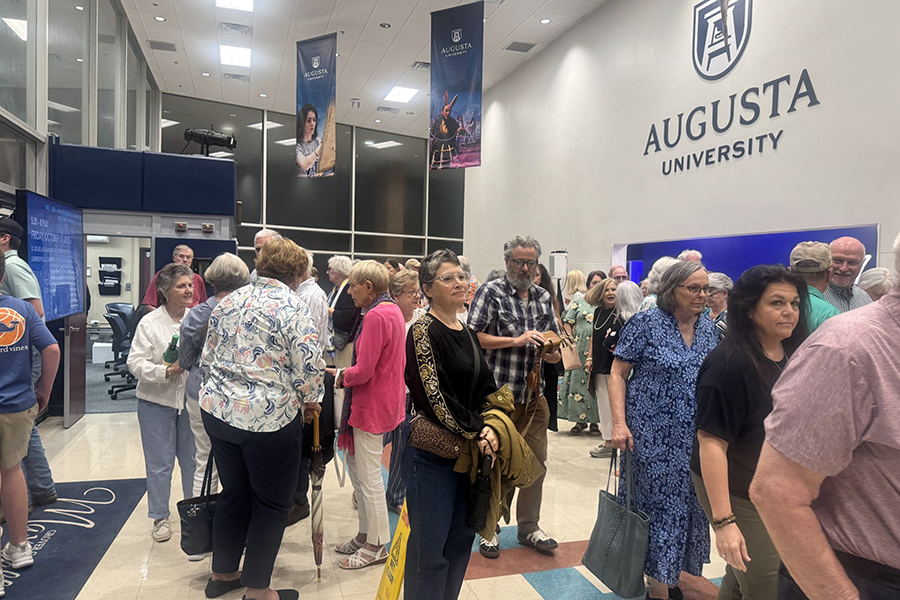
 Augusta University
Augusta University
